ANXIETY -CAUSES, SYMPTOMS AND TREATMENT
Anxiety may be transient, persistent, episodic or limited to specific situations. The symptoms of anxiety are both psychological and physical. Most anxiety is part of a transient adjustment to stressful events: adjustment disorders, other more persistent forms of anxiety. These are characterized by the emotion of anxiety, worrisome thoughts, avoidance behaviors and the somatic symptoms of autonomic arousal. Anxiety disorders are divided into three main subtypes: phobic, paroxysmal (panic) and generalized. The nature and prominence of the somatic symptoms often lead the patient to present initially to medical services. Anxiety may be stress-related and phobic anxiety may follow an unpleasant incident. Many patients with anxiety also have depression.1
Epidemiology
- One third of the population is affected by an anxiety disorder during their lifetime.
- The prevalence of anxiety disorders in women is approximately twice as high as in men. The prevalence is highest in midlife.
- In 2017, 197·3 million (95% UI 178·4–216·4) people had mental disorders in India with 44·9 million (41·2–48·9) with anxiety disorders.
Risk factors
- Temperamental- Behavioral inhibition, fear of negative evaluation and harm avoidance has been associated with anxiety disorders.
- Environmental – Such as parental over control, loss or separation, physical or sexual abuse
- Genetic and physiological- Few persons are genetically more susceptible to anxiety as compared to others.
Symptoms of anxiety disorder1
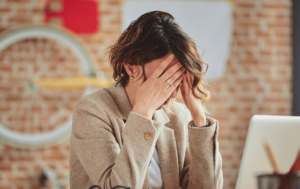 Psychological:
Psychological:
- Apprehension
- Irritability
- Worry
- Poor concentration
- Fear of impending disaster
- Depersonalization
Somatic/Physical symptoms:
- Palpitations
- Fatigue
- Tremor
- Dizziness
- Sweating
- Diarrhea
- Frequent desire to pass urine
- Chest pain
- Initial insomnia
- Breathlessness
- Headache
Classification
- Separation Anxiety Disorder
The essential feature of separation anxiety disorder is excessive fear or anxiety concerning separation from home or attachment figures.
- Selective Mutism
Children with selective mutism do not initiate speech or reciprocally respond when spoken to by others in social situations when they are expected to speak though they speak in other situations.
- Specific Phobia
The fear or anxiety is due to the presence of a particular situation or object (phobic stimulus). The anxiety is induced during that phobic stimulus.
- Social Anxiety Disorder (Social Phobia)
Anxiety of social situations in which the individual may be scrutinized by others like eating, drinking, performing in front of others. There is a thought of being humiliated, rejected or being embarrassed.
- Panic Disorder
A panic attack is an abrupt surge of intense fear or intense discomfort that reaches a peak within minutes, accompanied by physical and/or cognitive symptoms like palpitation, trembling, chest pain, choking, shortness of breath, nausea, dizziness, paresthesia, fear of dying or going crazy. They may be triggered in response to a feared object or situation.
- Agoraphobia
Marked fear or anxiety about using public transportation, being in open spaces, being in enclosed places, standing in line or being in a crowd, being outside of the home alone. They try to avoid these situations or want presence of someone with them as they feel that escape from this situation will be difficult alone.
- Generalized anxiety disorder
There is persistent and excessive anxiety and worry about various domains, including work and school performance that the individual finds difficult to control. In addition, the individual experiences physical symptoms, including restlessness or feeling keyed up or on edge; being easily fatigued; difficulty concentrating or mind going blank; irritability; muscle tension; and sleep disturbance.
- Substance/Medication-Induced Anxiety Disorder
Anxiety due to substance intoxication or withdrawal or to a medication treatment is included in this category.
Main features of three main
| Phobic anxiety disorder | Panic disorder | Generalized anxiety disorder | |
| Occurrence | Situational | Paroxysmal | Persistent |
| Behavior | Avoidance | Escape | Agitation |
| Cognitions | Fear of situation | Fear of symptoms | Worry |
| Symptoms | On exposure | Episodic | Persistent |
Diagnosis
The diagnosis is made on the basis of clinical history and typical symptom. Where a diagnosis of panic disorder is suspected, it can be confirmed by asking the patient to hyperventilate deliberately for 1–2 minutes and observing whether the symptoms are reproduced. A finding of respiratory alkalosis on arterial blood gas measurement is indicative of chronic hyperventilation.1
Another important aspect is to use the scales to evaluate patients for the level and type of anxiety. I use BDI (becks depression inventory, BAI (Becks Anxiety Inventory) and DASS 21 most commonly in my clinical practice. We use it for all patients who show any symptom of anxiety even if patients come for other physical complaints. The scales help in diagnosing the cases as well as evaluating betterment and results with treatment.
Some commonly used scales for evaluating the Anxiety and Depression:
| STAI | State-Trait Anxiety Inventory |
| BAI | Beck Anxiety Inventory |
| HADS-A | HADS-A |
| DASS-21 | DASS-21 |
| GADQ IV | Generalized Anxiety Disorder Questionnaire-iv |
| GAD-7 | Generalized Anxiety Disorder 7 |
| SPIN | Social Phobia Inventory |
| LSAS | Leibowitz Social Anxiety Scale |
| HARS |
Hamilton Anxiety Rating Scale |
Differential diagnosis of anxiety1
- Normal response to threat
- Adjustment disorder
- Generalized anxiety disorder
- Panic disorder
- Phobic disorder
- Organic (medical) cause:
- Hyperthyroidism
- Paroxysmal arrhythmias
- Phaeochromocytoma
- Alcohol and benzodiazepine withdrawal
- Hypoglycemia
- Temporal lobe epilepsy
Investigations
Anxiety may occasionally be a manifestation of a medical condition such as thyrotoxicosis. Tests to exclude or confirm these conditions should be considered, particularly if anxiety is a new symptom that has arisen in the absence of an obvious stressor.1
Management
Drug treatment
In conventional medicine anti-depressants like benzodiazepines and related drugs are given usually for short term and should be taken under guidance of a psychiatrist, cause tolerance and unpleasant or even dangerous withdrawal syndromes if used for more than a few weeks.1
Early side-effects of antidepressants can lead to a worsening of anxiety symptoms in the first 2 weeks and patients should be warned of this.1
Explanation and reassurance are essential, especially when patients fear they have a serious medical condition. Specific
Treatment may be needed. Treatments include relaxation, graded exposure (desensitization) to feared situations for phobic disorders, and CBT.1
Regular prescriptions are usually limited to 3 weeks; beyond that, prescriptions are usually restricted to occasional use as required, with periodic review to guard against dose escalation. All drugs shall be taken under advice of a psychiatrist.
Homeopathic management
Homeopathic can be used for acute as well as chronic cases of anxiety disorder. Homoeopathic medicine selection includes psychological as well as somatic symptoms of anxiety. It will also consider the cause and triggering factors causing anxiety. The medicine when given on basis of rightly selected totality will reduce and annihilate the anxiety. At our clinic we evaluate all patients at the start of treatment on standardized Anxiety scales and then re-evaluate patients at timely intervals to evaluate the response to treatment. This gives a result-oriented approach which we follow at Heal With Homeopathy clinic. Totality based remedy and acute remedies are given for acute attacks as part of the treatment. We also believe in integrative approach where we have an independent counselor who comes to clinic and gives counselling in cases where anxiety scores are very high, this includes tips for managing acute episodes and CBT. The counselor at the clinic also evaluates patients on regular basis to keep track of level of anxiety.
Some homeopathic remedies helpful for acute anxiety are following, please note these are only symptomatic helpful remedies and for deeper correction one would need a consultation with a registered homeopathic practitioner:
Medicines
ACONITUM NAPELLUS
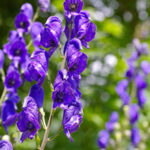 A state of fear, anxiety; anguish of mind and body. Physical and mental restlessness, fright, is the most characteristic manifestation of Aconite. Acute, sudden, and violent invasion. Emotional and physical mental tension explains many symptoms. Forebodings and fears. Fears death but believes that he will soon die; predicts the day. Fears the future, a crowd, crossing the street.
A state of fear, anxiety; anguish of mind and body. Physical and mental restlessness, fright, is the most characteristic manifestation of Aconite. Acute, sudden, and violent invasion. Emotional and physical mental tension explains many symptoms. Forebodings and fears. Fears death but believes that he will soon die; predicts the day. Fears the future, a crowd, crossing the street.
ARGENICUM NITRICUM
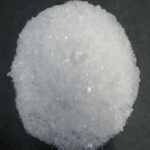 Thinks his understanding will and must fail. Fearful and nervous; impulse to jump out of window.
Thinks his understanding will and must fail. Fearful and nervous; impulse to jump out of window.
Faintish and tremulous. Peculiar mental impulses. Fears and anxieties and hidden irrational motives for actions. Apprehension when ready for church or opera, diarrhea sets in.
ARSENIC ALBUM
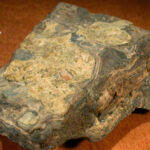 Fear fright and worry. Great anguish and restlessness. Changes place continually. Fears, of death, of being left alone. Great fear, with cold sweat. Thinks it useless to take medicine. Suicidal. Despair drives him from place to place. Depressing, melancholy, despairing, indifferent. Anxious, fearful, restless, full of anguish.
Fear fright and worry. Great anguish and restlessness. Changes place continually. Fears, of death, of being left alone. Great fear, with cold sweat. Thinks it useless to take medicine. Suicidal. Despair drives him from place to place. Depressing, melancholy, despairing, indifferent. Anxious, fearful, restless, full of anguish.
Irritable, sensitive, peevish, easily vexed. The greater the suffering the greater the anguish restlessness and fear of death. Attacks of anxiety at night driving out of bed, < after midnight.
CALCAREA CARBONICUM
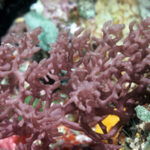 Anxiety with palpitation. Fears she will lose her reason or that people will observe her mental confusion. Longing for fresh air (when in a room) which inspires, benefits, strengthens. Desire to be magnetized.
Anxiety with palpitation. Fears she will lose her reason or that people will observe her mental confusion. Longing for fresh air (when in a room) which inspires, benefits, strengthens. Desire to be magnetized.
KALIUM CARBONICUM
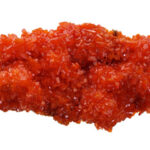 Early morning aggravation is very characteristic. Very irritable. Full of fear and imaginations. Anxiety felt in stomach. Never wants to be left alone.
Early morning aggravation is very characteristic. Very irritable. Full of fear and imaginations. Anxiety felt in stomach. Never wants to be left alone.
GELSEMIUM SEMPERVIRENS
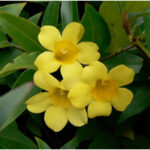 For children, young people, especially women of a nervous hysterical temperament. Centers its action upon the nervous system, causing various degrees of motor paralysis. General prostration. Dizziness, drowsiness, dullness, and trembling. Slow pulse, tired feeling, mental apathy. Desire to be quiet, to be left alone.
For children, young people, especially women of a nervous hysterical temperament. Centers its action upon the nervous system, causing various degrees of motor paralysis. General prostration. Dizziness, drowsiness, dullness, and trembling. Slow pulse, tired feeling, mental apathy. Desire to be quiet, to be left alone.
KALIUM PHOSPHORICUM
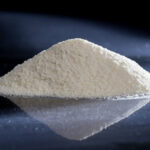 One of the greatest nerve remedies. Prostration. Weak and tired. Especially adapted to the young. Marked disturbance of the sympathetic nervous system. Conditions arising from want of nerve power, neurasthenia, mental and physical depression, are wonderfully improved this remedy. The causes are usually excitement, overwork and worry. Anxiety, nervous dread, lethargy.
One of the greatest nerve remedies. Prostration. Weak and tired. Especially adapted to the young. Marked disturbance of the sympathetic nervous system. Conditions arising from want of nerve power, neurasthenia, mental and physical depression, are wonderfully improved this remedy. The causes are usually excitement, overwork and worry. Anxiety, nervous dread, lethargy.
Indisposition to meet people. Extreme lassitude and depression. Very nervous, starts easily, irritable. Brain-fag; hysteria; night terrors. Worse, excitement, worry, mental and physical exertion.
SILICEA TERRA
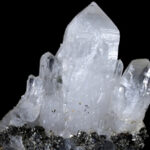 It goes further and produces neurasthenic states in consequence, and increased susceptibility to nervous stimuli and exaggerated reflexes. Yielding, faint-hearted, anxious.
It goes further and produces neurasthenic states in consequence, and increased susceptibility to nervous stimuli and exaggerated reflexes. Yielding, faint-hearted, anxious.
Nervous and excitable. Sensitive to all impressions. Brain-fag. Obstinate, headstrong children. Abstracted. Fixed ideas; thinks only of pins, fears them, searches and counts them. Night-walking; gets up while asleep. Anxious dreams. Anxious, yielding, fainthearted.
LYCOPODIUM CLAVATUM
 Melancholy; afraid to be alone. Little things annoy, extremely sensitive. Averse to undertaking new things. Head strong and haughty when sick. Loss of self-confidence. Constant fear of breaking down under stress. Apprehensive. Weak memory, confused thoughts; spells or writes wrong words and syllables. Failing brain-power. Cannot bear to see anything new. Cannot read what he writes. Sadness in morning on awaking.
Melancholy; afraid to be alone. Little things annoy, extremely sensitive. Averse to undertaking new things. Head strong and haughty when sick. Loss of self-confidence. Constant fear of breaking down under stress. Apprehensive. Weak memory, confused thoughts; spells or writes wrong words and syllables. Failing brain-power. Cannot bear to see anything new. Cannot read what he writes. Sadness in morning on awaking.
CACTUS GRANDIFLORUS
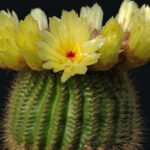 Characteristic constrictions as of an iron band found in various places, esophagus, bladder, etc.
Characteristic constrictions as of an iron band found in various places, esophagus, bladder, etc.
The mental symptoms produced correspond to those found when there are heart affections, sadness, and melancholy. Melancholy, taciturn, sad, ill-humored. Fear of death. Screams with pain. Anxiety. Sensation as of a weight on vertex. Violent palpitation; worse lying on left side, at approach of menses. Whole body feels as if caged.
Case:
A female patient aged 38 yrs. visited the clinic with main complaint as she is become pessimist and has too many thoughts in her mind since a recent event in her life of a cardiac arrest which happened in front of her about 3 months back. Her additional physical symptoms were Dryness of mouth, pain in left arm, acidity, eructation, and tightness of throat. She has weeping episodes, when she looks at her father. She lost her mother 2 yrs back and this episode brought fear her to mind. She had a medical background and she took him to hospital well in time saved her father, she was able to take the decision at that moment. But post that after he was taken to hospital and he is well, she is having this fear. She wasn’t even able to visit him after that and she sent him to her sister’s house as she gets extremely fearful as soon as she sees him. She has fear of losing her father and fear that she is developed some cardiac disease. All her test for cardiac status has been done and all reports are normal. She says she kind of has a brain fag since then. Totality was taken. She told that she is basically a family person. “I take extra efforts to make sure everyone is well taken care of in the house. I want to keep all good relations with all relatives. Now I don’t feel like doing all that. I had a passion to become a doctor I couldn’t but still did Medical transcription and I was very good at my work when was working. I have struggled at lot. Pregnancy was very stressful as father in law didn’t accept me but I stood for myself as I was right. I like to keep busy; I express my anger and like to do things my way.” She was a chilly patient. She was evaluated on first visit itself BAI (Becks Anxiety Inventory). Her BDI score was 40 on her first visit on 9.9.2019. She was prescribed Kali carb 30 t.d.s for 2 weeks, which was given because of following reasons- anxiety ++, family relations is core of the patient. Fear death and anxiety health of family members, chilly, gastric symptoms most prominent with anxiety and righteousness. She came back after 3 weeks with much improvement, including all her physical symptoms. Her score came down to 4 on 7.10.2019. Same dose was repeated and her score was 1 on 11.11.2019. Same dose repeated and asked to stop after 2 weeks. Patient reported well after one month with no symptom of anxiety. She said she is completely ready to take care of father and thanked homeopathy for same. There are two reasons for such a fast improvement in her case first is it’s an anxiety triggered by an episode and since remedy is totality based. Has it been a chronic case we would have seen improvement gradually. She is an example case but long term anxiety cases take longer.
References:
- Davidson’s, Principles and Practice of Medicine, 2018, 1417p
- American Psychiatric Association: Diagnostic And Statistical Manual of Mental Disorders. 5th ed. Arlington,VA: American Psychiatric Association; 2013. p. 189-233.
- Bandelow B, Michaelis S. Epidemiology of anxiety disorders in the 21st century. Dialogues Clin Neurosci. 2015 Sep;17(3):327-35. PMID: 26487813; PMCID: PMC4610617.
- GBD 2017 India state – level disease burden initiative mental disorders collaborators. The burden of mental disorders across the states of India, 1990-2017: The Global Burden of Disease Study 2017. Lancet. 2019 Dec 23;7(2):148-161.
Available from: https://www.thelancet.com/journals/lanpsy/article/PIIS2215-0366(19)30475-4/fulltext
Authors: Dr Geeta Rani Arora, BHMS, MD and Dr Arti Goyal copyright@Heal with Homeopathy
Originally published in Homeopathy for All Magazine, June 2020 Issue.
